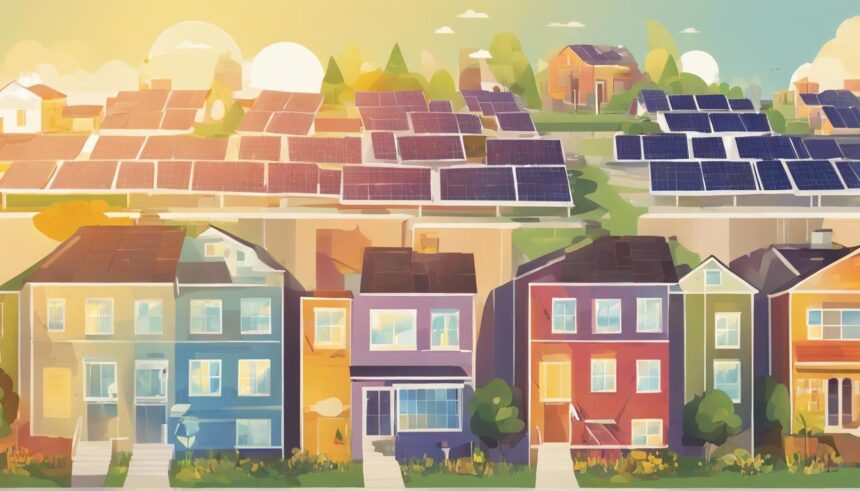A comprehensive report by Aurora Solar uncovers the enthusiasm and challenges surrounding residential solar power in the US, highlighting a trust gap and the potential of solar leasing to encourage widespread adoption.
In the evolving landscape of renewable energy within the United States, residential solar power has emerged as a beacon of hope for homeowners eager to reduce their carbon footprint and harness the power of the sun. However, a recent report unveiled by Aurora Solar, a leading firm in solar sales and design technology, casts a light on the complexities and challenges that lie ahead for the solar industry and its potential customers.
Aurora Solar’s second annual “Solar Industry Snapshot” delves deep into the state of residential solar power adoption in the early months of 2024. Drawing upon a rich database of over nine million solar projects over the past two years, and complemented by surveys involving 1,000 U.S. homeowners and 500 solar professionals, the report offers a comprehensive analysis of current trends, challenges and opportunities within the industry.
One of the most striking findings is the high level of interest among U.S. homeowners in solar energy solutions. A significant majority believe that solar is a sound investment, pointing towards a growing consciousness around sustainable living and energy independence. Yet, this enthusiasm often hits a roadblock when faced with the reality of system and installation costs, with three-quarters of interested homeowners citing financial concerns as a major barrier.
Interestingly, the report notes a potential shift towards solar leasing, spurred by current high-interest rates. This financing model could play a crucial role in transitioning homeowners from mere interest to actual adoption, provided there is sufficient education around third-party ownership to navigate the complexities of solar investments.
Amidst this optimism, the report uncovers a worrying trend: a decline in trust towards solar companies. In a year-on-year comparison, the percentage of homeowners struggling to find a trustworthy solar provider doubled, jumping from 22% in 2023 to 44% in 2024. This perception is seemingly echoed by solar professionals themselves, who identify homeowner reluctance to commit to quotes as a significant hurdle.
Addressing this trust gap, the report underscores the importance of education. Elevating homeowners’ understanding of solar technology, financing options, and the benefits of solar adoption is deemed crucial for building confidence in solar solutions.
Adding another layer to the solar adoption narrative, the report sheds light on the synergy between solar panels, battery storage, and home electrification. While currently only a small fraction of homeowners has invested in battery storage, and even fewer understand net energy metering, there is anticipation of growing interest in these areas. Such integrations are not only perceived as valuable by homeowners but are also increasingly sought after, as indicated by nearly three-quarters of solar professionals.
Aurora Solar’s report not only offers insights but also encapsulates the challenges and opportunities defining the U.S. residential solar landscape in 2024. With rising electricity rates and evolving net metering policies, the direction in which homeowners and solar professionals navigate these waters could significantly influence the trajectory of solar adoption in the coming years.
Beyond merely highlighting statistics, Aurora Solar’s initiative in compiling and sharing these findings reinforces its commitment to fostering a sustainable future powered by solar energy. With accolades from prestigious entities and its technology serving thousands of solar projects worldwide, Aurora Solar stands at the forefront of empowering the industry through data, automation, and AI-driven solutions. As the U.S. marches towards a greener tomorrow, the insights from Aurora Solar’s report could be instrumental in bridging the gaps between interest, trust, and action in the solar energy domain.





